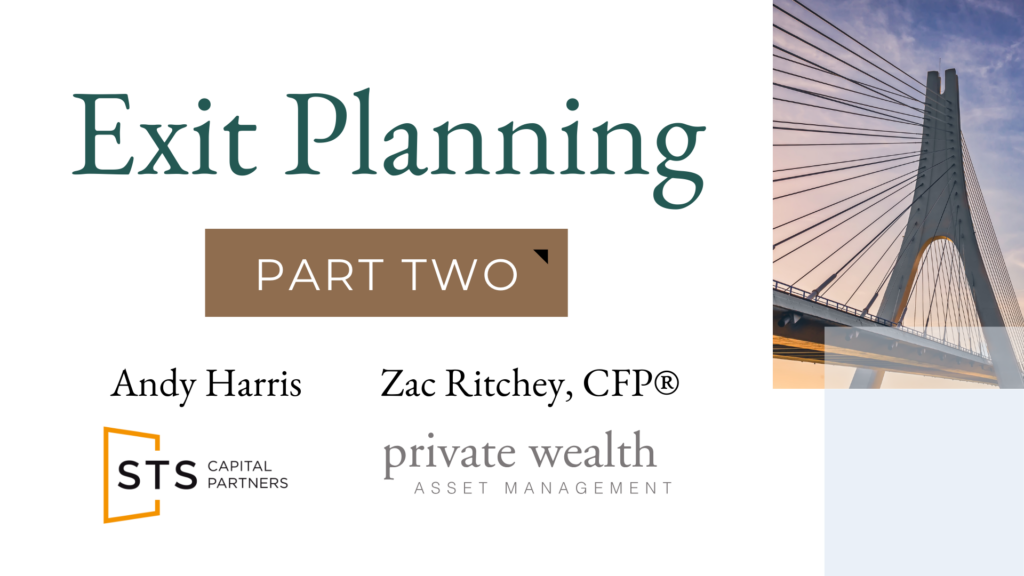Anyone who has made an impulse purchase while standing in the checkout lane of their local Target or while watching an infomercial late at night understands that money decisions don’t always follow reason or logic. Yet, I would venture to say that most people intend to approach their financial and investment decisions with clear logic and rationality.
Over the past several decades, behavioral finance has emerged as a field of study into why and how people make economic decisions. Research has shown that it is difficult to ignore the influence of our emotions, childhood lessons and the overwhelming nature of living in the information age. In further recognition that facts and figures are not the only valid data points to consider when providing financial advice, in 2021, the CFP Board added a new section to their curriculum titled the Psychology of Finance.
Identifying Psychological Influences in Finance
You may be familiar with certain aspects of behavioral finance without attributing that knowledge to a particular field. For example, people have a stronger emotional reaction to loss than to the possibility of gain. Studies have shown that the notion of losing $1,000 causes more angst than the emotional upside of potentially gaining $1,000. It is not that dissimilar from research showing that it takes at least three compliments to overcome the sting of a critical comment. People internalize the loss (or negative, depending on the circumstances) more strongly than the gain and will go to greater lengths to avoid it.
The emotions on display here are the result of a common psychological bias called loss aversion. It’s one of many normal human mechanisms for protecting ourselves from pain. The subtle role that biases like this play in how we make practical, real-world decisions, however, is more prominent than most people think.
Whether you realize it or not, your past experiences and subconscious assumptions can lead to less-than-optimal financial and wealth-planning decisions. Understanding that these biases exist, as well as the subtle role they play, is the first step in addressing their impact. Just as critical is developing a plan to help you make informed and objective decisions that align with your goals. For many, this involves seeking advice and expertise from an experienced advisor with a formal process for providing wealth planning and investment advisory services.
What Can Be Learned From Behavioral Finance?
Behavioral finance combines the principles of psychology with economics to better understand and improve financial decision-making. At a market level, it looks at how large-scale economics are impacted by individual decisions. On a personal level, it recognizes that many of the ideas and behaviors around money are learned early in life, creating conscious and unconscious biases and emotions that can be difficult to overcome.
In addition to non-financial influences, the unrelenting barrage of financial information and data available at our fingertips can make it difficult to synthesize and identify what is meaningful and what is just noise.
Behavioral finance explains how, when individuals are faced with all that noise, it is easy to stray from rational decision-making processes when using:
- mental shortcuts,
- general rules of thumb developed over time, and
- assumptions based on our past experiences.
For example, when deciding between the numerous investment options available, there is a tendency to look to past performance for indications of future success. Yet, if you look, every investment advertisement includes a phrase such as “past performance is not indicative of future results.” Regulatory bodies require this disclaimer because this common tendency fails to take into account changes that might be happening in the economy, increased inflation or changes in a company’s management—all of which influence future performance.
Common Influences and Biases That May Affect Decision-Making
Take a look at some common behavioral biases and mental shortcuts that might affect a person’s ability to make logical financial decisions. Can you relate to any of these?
- Loss Aversion: The tendency to strongly prefer avoiding losses to acquiring gains, which was discussed in more detail above.
- Anchoring Bias: The overreliance on an arbitrary reference point, or “anchor,” when making buy-sell decisions. For example, an individual may be anchored to a stock price based on its acquisition price and then hold onto it, rather than examining the decision in light of new or more complete information.
- Recency Bias: When the memory of recent events significantly outweighs how an investor evaluates performance, causing them to minimize a more complete review of the available information. For example, investors often exit the market in haste during an abrupt market downturn, placing greater importance on recent events than on obtaining a broader view.
- Herding: The tendency for individuals to follow the crowd and invest in the same stocks or assets as others without fully researching and understanding the investment. During the dot-com bubble of the late 1990s, many individuals invested in technology stocks as a trend without fully understanding the companies or the particular nuances of that sector.
- Overconfidence Bias: The tendency to overestimate one’s own abilities to predict future events, such as selecting the “best” stocks or timing the markets. For instance, an individual may become overconfident in their own stock-picking abilities and make impulsive or overly risky investment decisions that may be out of alignment with their goals and strategies.
- Confirmation Bias: The tendency to seek out and interpret information in a way that confirms one’s existing beliefs or hypotheses, ignoring other relevant information. For example, an individual may look for information that supports their belief that a particular stock is undervalued while ignoring information that suggests otherwise.
The Best Way to Stay on Track? Have a Plan.
Step 1: Be Aware. Simply being aware of how your emotions, biases and lived experiences can subtly influence your financial decision-making is a crucial first step toward sidestepping a potential pitfall. Nobody is exempt from these influences, though some may be more adept at overcoming them. We can all practice taking a pause to examine the “why” behind our financial decisions.
Step 2: Seek Advice. Financial decisions are personal, as are the goals and priorities driving those choices. Connecting with an advisor who takes the time to know you on a personal level and works with you to build a plan centered around your unique situation, can help you make informed decisions that align with your overall goals for yourself and your family.
We’re Here to Help
Trust is everything in wealth management. At Private Wealth, our boutique-style, multi-family office model prioritizes you above all else. We take our role as a fiduciary seriously, looking for the opportunities and strategies that best advance your personal situation and goals. Our advice integrates and looks beyond the numbers, striving to provide meaningful counsel that considers each client’s unique history, perspective, and family dynamics. You deserve a dedicated team to help you achieve peace of mind and make progress toward your personal vision for the future.
Schedule a complimentary consultation with a Private Wealth advisor today.






